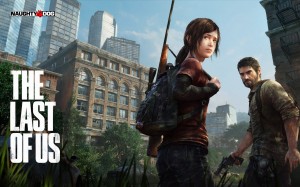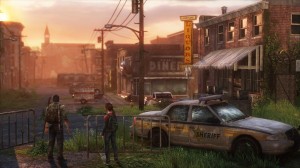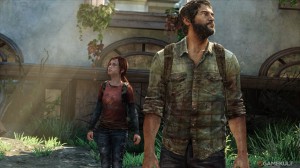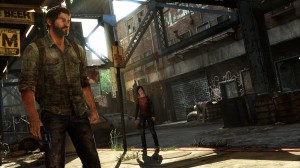Trending
Opinion: How will Project 2025 impact game developers?
The Heritage Foundation's manifesto for the possible next administration could do great harm to many, including large portions of the game development community.
The Last of Us is an excellent game; but some choices made by Naughty Dogs have no place in a video game, in my humble opinion. This a not review of the game though, just a criticsm of the aforementioned choices.

Note: If you did not play the game, do not read the article. It would completely spoil the experience.
 I really loved The Last of Us, and I've been very much touched by its story. But there's still something that botheres me in this game. Indeed, I feel that a modern game has duties to fullfil regarding player's interaction. And I felt betrayed by Naughty Dog's decision to not give the player the final choice. So, what's the problem ?
I really loved The Last of Us, and I've been very much touched by its story. But there's still something that botheres me in this game. Indeed, I feel that a modern game has duties to fullfil regarding player's interaction. And I felt betrayed by Naughty Dog's decision to not give the player the final choice. So, what's the problem ?
The story is linear, and this is the source of the problem. But linear scenario is not new to video games (it's the contrary actually), and especially for Naughty Dog (all Uncharted games, as good as they were, were very linear). In The Last of Us they have written a very deep, complex scenario about relationship, traumas, psychology and survival instincts.  The player has no choice to make in game, while the story goes on and the characters reveal their true nature, and build their relations. A goal is given to the player at the beginning of the game, and he feels like he's working to reach it all along. We are used to heroes that have more or less complex character. In The Last of Us, even when Joel has doubts (especially when he finds his brother and tries to leave Ellie), we know that he will finally make the expected choice to keep on reaching the initial goal (saving the world, mostly). And I was fine with it: when the hero is given a mission, it's actually a contract between the game and the player ("you can play the game, if you accept to save the world through it"). External actions can change the course of the mission, and the player (through the game) will adapt. Or, in non-linear games, that's the player's decisions (in addition to external factors) that shape, more or less, the story (cf. The Walking Dead, Mass Effect, Fallout).
The player has no choice to make in game, while the story goes on and the characters reveal their true nature, and build their relations. A goal is given to the player at the beginning of the game, and he feels like he's working to reach it all along. We are used to heroes that have more or less complex character. In The Last of Us, even when Joel has doubts (especially when he finds his brother and tries to leave Ellie), we know that he will finally make the expected choice to keep on reaching the initial goal (saving the world, mostly). And I was fine with it: when the hero is given a mission, it's actually a contract between the game and the player ("you can play the game, if you accept to save the world through it"). External actions can change the course of the mission, and the player (through the game) will adapt. Or, in non-linear games, that's the player's decisions (in addition to external factors) that shape, more or less, the story (cf. The Walking Dead, Mass Effect, Fallout).
 But the epilogue of The Last of Us is really breaking this game-player contract. Joel has, in the end, motivations that are different than the player supposed, and that's where I felt betrayed: when a game gives you a character to play, it either introduces it to you or let you customize it, so you trust the game to make the character act as you'd expect (when it doesn't let you make the decisions for him). Naughty Dog decided to break this contract, so I really felt like I was just a spectator in the end, and not an actor of the story. Video game is THE interactive art, so I think that developers have not the right to make the player believe he controls the character, and then impose tough, crucial decisions to him. It's easy to imagine a Zelda game where Link, in the end, uses the Triforce to take over the world of Hyrule, instead of protecting it, and that would be shocking. There are linear games where the hero is actually bad, but it's in the game-player contract (God of War is the best example).
But the epilogue of The Last of Us is really breaking this game-player contract. Joel has, in the end, motivations that are different than the player supposed, and that's where I felt betrayed: when a game gives you a character to play, it either introduces it to you or let you customize it, so you trust the game to make the character act as you'd expect (when it doesn't let you make the decisions for him). Naughty Dog decided to break this contract, so I really felt like I was just a spectator in the end, and not an actor of the story. Video game is THE interactive art, so I think that developers have not the right to make the player believe he controls the character, and then impose tough, crucial decisions to him. It's easy to imagine a Zelda game where Link, in the end, uses the Triforce to take over the world of Hyrule, instead of protecting it, and that would be shocking. There are linear games where the hero is actually bad, but it's in the game-player contract (God of War is the best example).
 The conclusion of this topic is not to say that Naughty Dog made a mistake. It was the only possible conclusion to make it a truly memorable game. If Joel had delivered Ellie and let people make the vaccine, they would have been heroes, Ellie would have died, Joel (and the player) would have been very sad, and the game would have been simply excellent. The actual ending is shocking, emotionally very powerful, but I feel it's an ending that should be delivered in a movie, because you take it as a spectator, but that"s not the case in a video game, through the mouth of your own character. Naughty Dog tried to prepare the player to this conclusion throughout the game (from the prologue to the evolution of the Joel-Ellie relationship), but I didn't agree with Joel's decision of killing every people in the hospital to save Ellie. I did this with resentment. Maybe it would have been a little better if all the epilogue (including this last chapter) has been presented through a (long) cinematic.
The conclusion of this topic is not to say that Naughty Dog made a mistake. It was the only possible conclusion to make it a truly memorable game. If Joel had delivered Ellie and let people make the vaccine, they would have been heroes, Ellie would have died, Joel (and the player) would have been very sad, and the game would have been simply excellent. The actual ending is shocking, emotionally very powerful, but I feel it's an ending that should be delivered in a movie, because you take it as a spectator, but that"s not the case in a video game, through the mouth of your own character. Naughty Dog tried to prepare the player to this conclusion throughout the game (from the prologue to the evolution of the Joel-Ellie relationship), but I didn't agree with Joel's decision of killing every people in the hospital to save Ellie. I did this with resentment. Maybe it would have been a little better if all the epilogue (including this last chapter) has been presented through a (long) cinematic.
I'd really love to talk about it with the writers at Naughty Dog's, to have their feeling about it. Did they reflect on this matter: Making a strong, memorable but frustrating experience, or rather a logical ending to the story, for a quite classic (but excellent) game ?
EDIT: after some discussions about the article and following reflections, I must admit that this choice is a masterstroke. But I also feel that it is and will be a one shot experience, as no game will be able to reiterate it so much success. I really think that breaking the game-player contract will create more and more frustration and/or suspicion as it is repeated. This way, we cannot say that Naughty Dog made the video game art move forward, but most definitely had an excellent original idea and made an excellent product from it. But like Usual Suspects in its own time, which ending was a very big surprise, every following movie using the same trick were less and less surprising as they were released.
If you want to read more articles about video game as a proper art form, please visit my blog gameasart.net
You May Also Like